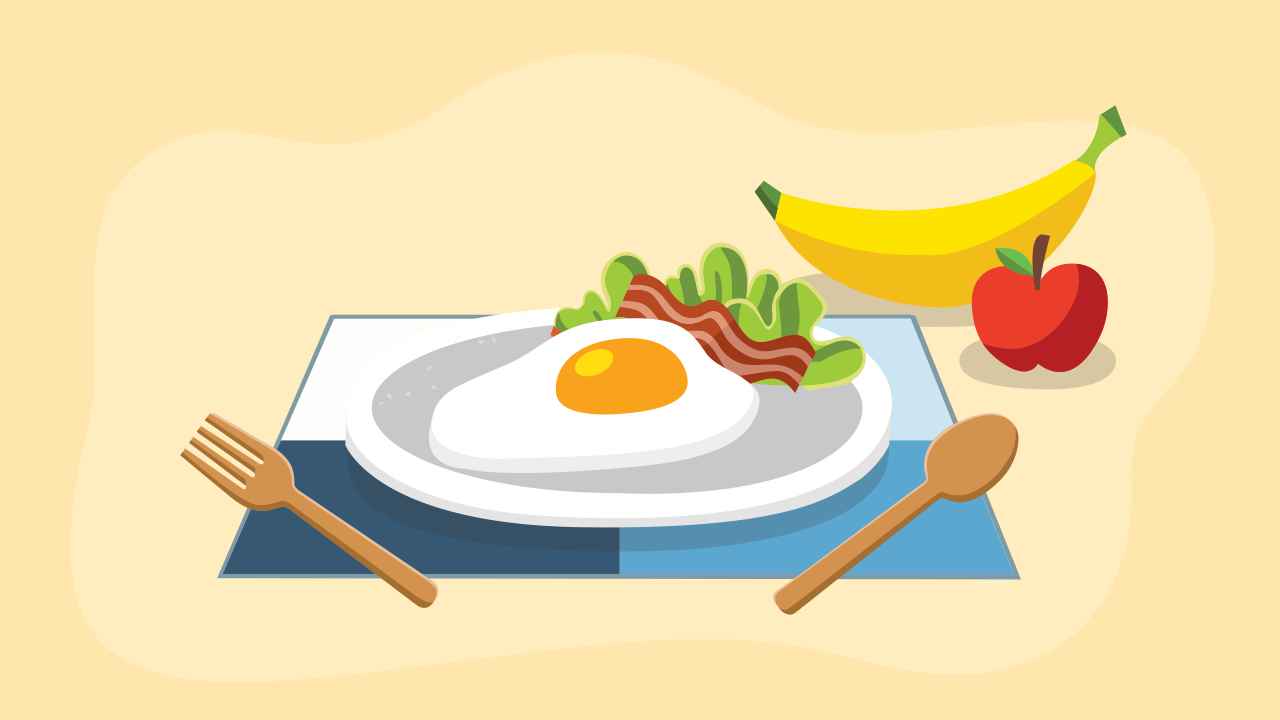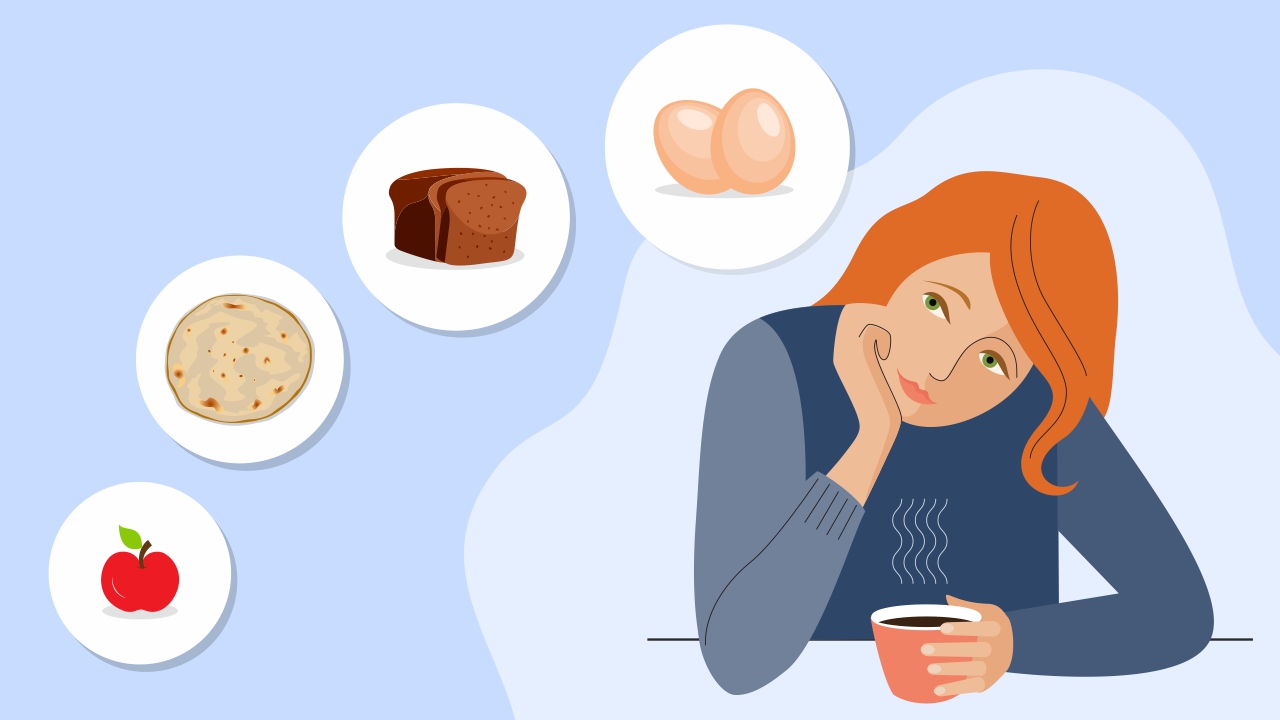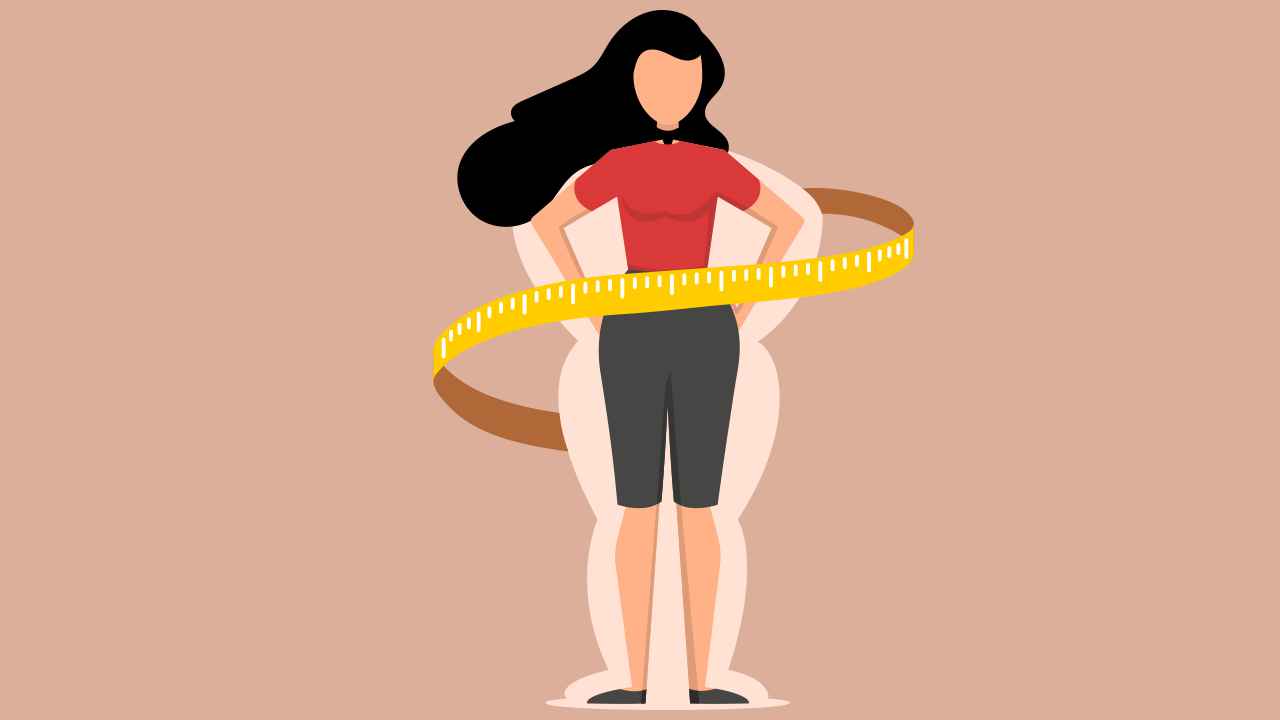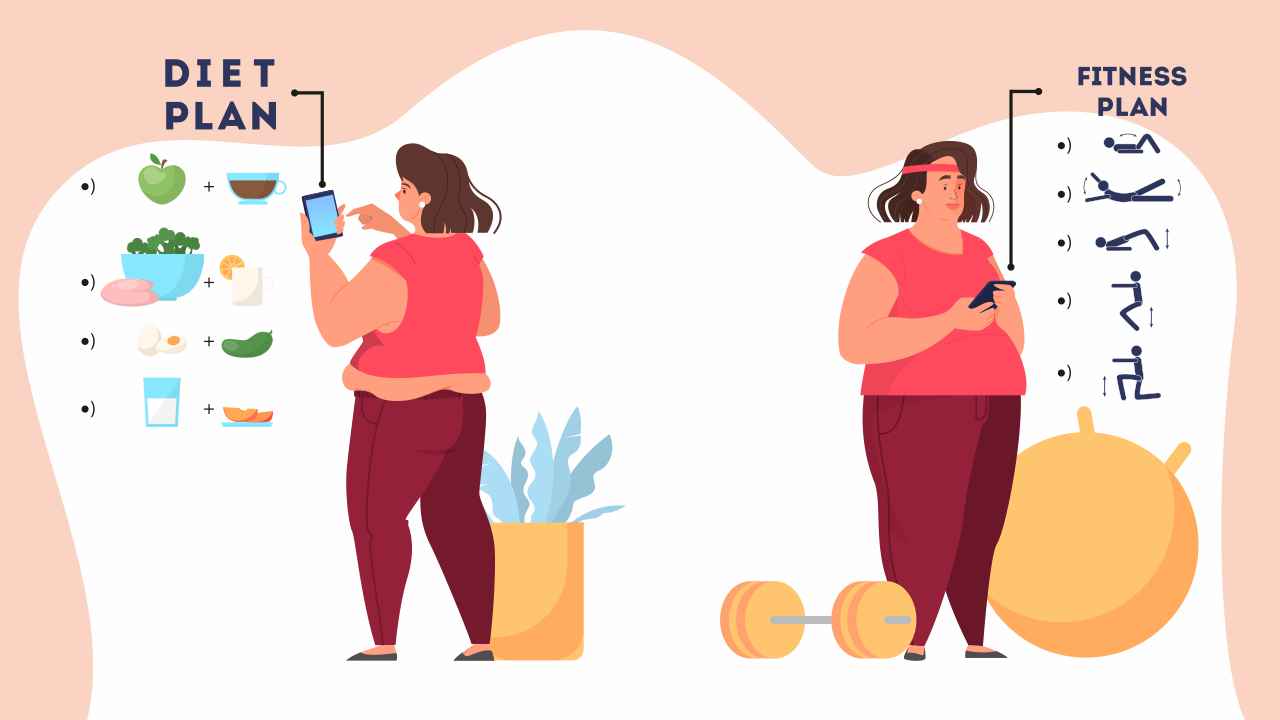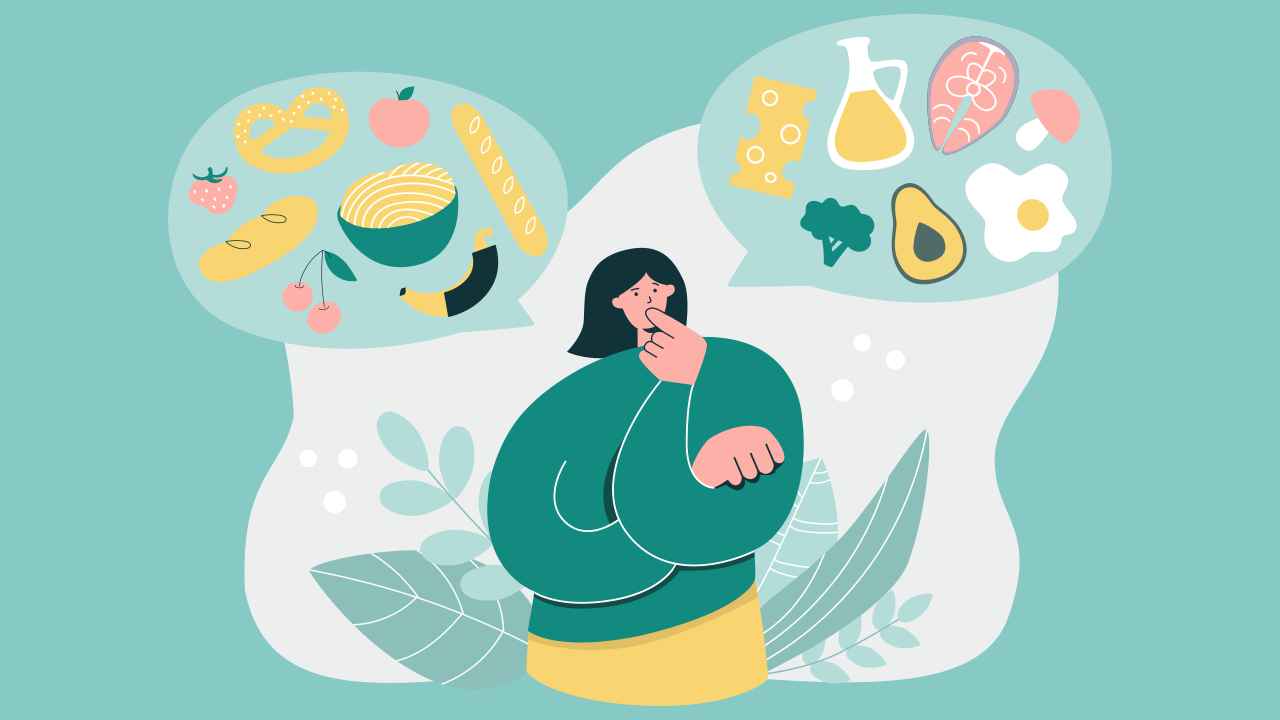
The Science of Gaining and Losing Weight

Is your body weight weighing on your mind? If yes, then you aren’t alone. Our obsession with gaining or losing weight is evident by the plethora of special diets and supplements, exercise routines, and fitness books available in the market. But, even so, most of us might have a limited understanding of the mechanisms of weight regulation. So let’s explore the science of gaining or losing weight.
What is energy balance?
Energy is another word for calories. Your body’s energy balance is the relationship between “energy in” (calories consumed through food and drink) and “energy out” (calories used for vital body functions and physical activity).
Energy is stored in food in the form of macronutrients — carbohydrates (carbs), protein, and fat. While consumption of one gram each of carbs and protein provides you with four calories, the same amount of fat will provide you with nine calories. You utilize the calories stored in your food for three primary functions: living, working, and creating energy reserves.
About 60%-70% of the calories you burn each day go towards vital body functions like breathing, pumping blood, maintaining body temperature (generating heat), and daily sedentary activities such as sleeping, sitting, or even scrolling through social media. This collective calorie expenditure constitutes your Basal Metabolic Rate (BMR) or Resting Energy Expenditure (REE)
About 20%-30% of your energy expenditure comes from active physical tasks such as standing, walking, climbing stairs (known as non-exercise activity thermogenesis or NEAT), and exercise (known as exercise-related activity thermogenesis). You can modulate this fraction of your energy expenditure the most by increasing or decreasing not only how much you exercise, but also how much you move during the day.
And finally, about 10% is used in digesting and metabolising your food, known as the thermic effect of food (TEF). Any calories you consume over your requirements end up being stored as body fat, so that our body can break it down and make use of it when necessary.
So, in essence, your life is tied to the cycle of eat, burn, store, repeat. The number of calories you consume and burn decides how much energy ends up being stored in your body. So over time, if your:
Energy in = Energy out : Neutral energy balance leading to weight maintenance
If Energy in < Energy out : Negative energy balance leading to weight loss
If Energy in > Energy out : Positive energy balance leading to weight gain
How can you create a negative energy balance in your body?
You can create a negative energy balance in your body by either reducing your “energy in” or increasing your “energy out.” Doing both is the best way to achieve and maintain healthy body weight. You can burn about half kg of body fat by creating an energy deficit of approximately 500 calories each day — leading to a deficit of 3,500 calories per week.
When you begin following a hypocaloric diet (calorie deficit diet plan for weight loss), your body starts to burn fat stores for energy. But, too severe or prolonged calorie restriction may lead to increased hunger, loss of muscle tissue, and decreased BMR. This is why crash dieters tend to regain their weight and have low muscle mass.
Also read: Calorie Deficit: How to Calculate It for Weight Loss
How to lose weight in a healthy way?
You can follow these tips to lose weight healthily and sustainably. These will enable you to follow a calorie deficit diet plan for weight loss.
1. Work out your daily energy expenditure, and plan your diet and exercise routine to create an appropriate energy deficit based on your body weight goals.
2. Choose a practical hypocaloric diet plan that includes all food groups and nutrients because the quality of the calories you eat — ie, which foods they come from and how nutritious they are — is just as important as the number of calories you eat.
3. Reduce your calorie intake by limiting sources of refined carbohydrates such as bread, soft drinks, and sweets, and saturated fats like red meat, ice-creams, and fried snacks.
4. Include healthy fats such as nuts, seeds, fish, and healthy oils such as olive oil in your diet to keep you fuller for longer.
5. Eat a sufficient amount of proteins in each meal to lower the levels of hunger hormones by including foods such as pulses, poultry, lean meats, and low-fat dairy products in your diet.
6. Increase your fiber intake to reduce your hunger by including a variety of vegetables, fruits, and whole grains.
7. Eat regular meals and control their portion size to spread out and limit your energy intake.
8. Practice mindful eating to savor your meals and derive maximum satisfaction from them.
9. Engage in moderate-intensity physical activities like brisk walking, hiking, cycling, or dancing for at least 30-60 minutes, three times a week.
10. Sleep for a minimum of seven hours each night and reduce your stress levels.
How can you create a positive energy balance in your body?
When you eat more calories than you burn, you’re in an energy surplus. Staying in surplus over weeks and months, and ensuring proper nutrition for weight gain will slowly but surely help you in putting on weight. This energy gap doesn’t have to be huge, either. For instance, eating just 200 more calories a day than you burn can increase your body weight by nearly five kilograms over six months. That’s a gain of about 10 kilograms in a year.
While necessary for muscle gain, a positive energy balance can lead to excess fat gain as well. So, it is essential to do the appropriate exercises and follow the correct nutrition plan for weight gain to ensure that the weight you put on is not all fat, and add healthy foods to gain weight in your daily diet.
Also read: The 80/20 Rule: Should You Diet or Exercise to Lose Weight
How to gain weight in a healthy way?
You can adopt the following strategies for healthy weight gain.
1. Plan a hypercaloric diet that provides you 500 more calories than your “energy out” to gain half kg of weight in seven days.
2. Include energy and nutrient-dense foods (more calories and nutrients per gram of food) in your diet. A few healthy foods to gain weight include foods such as cheese, nuts, starchy vegetables, peanut butter, and avocado. With these items, you may raise your calorie intake without increasing the bulk of your diet.
3. Eat at least 1g-2.2g protein per kg bodyweight each day to enhance muscle growth.
4. Eat more frequent meals and include protein-rich snacks in your daily diet.
5. Don’t drink water or other fluids at least 30 mins before your meals to improve your appetite.
6. Limit the amount of tea and coffee you consume to one to two cups per day as their excess consumption can suppress appetite.
7. Follow an exercise regimen that includes at least three to four hours of weight and resistance training per week to increase your muscle mass.
8. Seek professional medical help if you are losing weight without trying or have little to no appetite, since these could be the signs of a disease or an eating disorder.
Consume fewer calories than you burn, and you will lose weight; consume more than you burn if you want to gain weight — the science behind weight gain or weight loss is that simple. And it requires more discipline and dedication than the usage of exotic and unrealistic strategies.
References
1. Howell S, Kones R. “Calories in, calories out” and macronutrient intake: The hope, hype, and science of calories. American Journal of Physiology, Endocrinology and Metabolism. 2017; 313(5): E608–E612.
2. Schoeller DA, Buchholz AC. Energetics of obesity and weight control: Does diet composition matter? Journal of the American Dietetic Association. 2005; 105(51), S24–28.
3. Calcagno M, Kahleova H, Alwarith J, et al. The Thermic Effect of Food: A Review. Journal of the American College of Nutrition. 2019; 38(6): 547–551.
4. Hall KD, Heymsfield SB, Kemnitz JW, et al. Energy balance and its components: Implications for body weight regulation. The American Journal of Clinical Nutrition. 2012; 95(4): 989–994.
5. Paddon-Jones D, Westman E, Mattes RD, et al. Protein, weight management, and satiety. The American Journal of Clinical Nutrition. 2008; 87(5): 1558S-1561S.
6. Westerterp KR. Physical activity, food intake, and body weight regulation: Insights from doubly labeled water studies. Nutrition Reviews. 2010; 68(3): 148–154.


